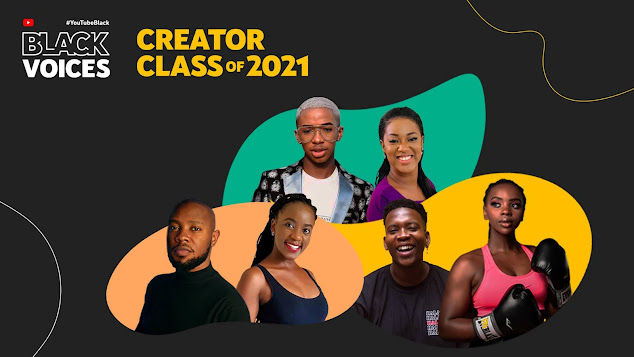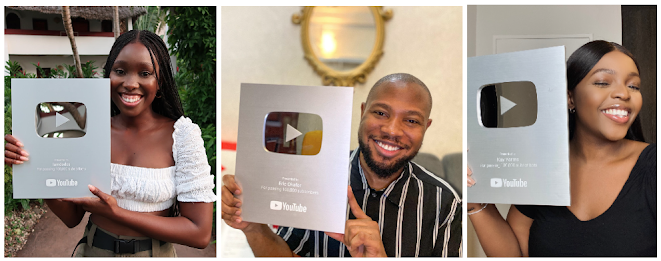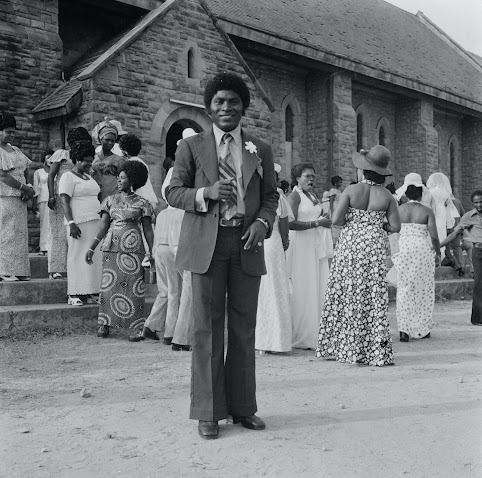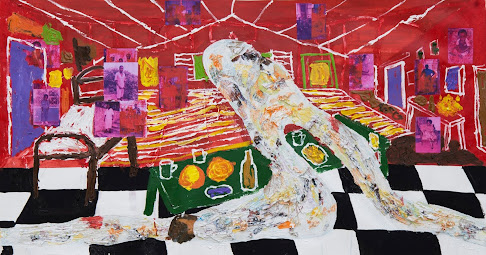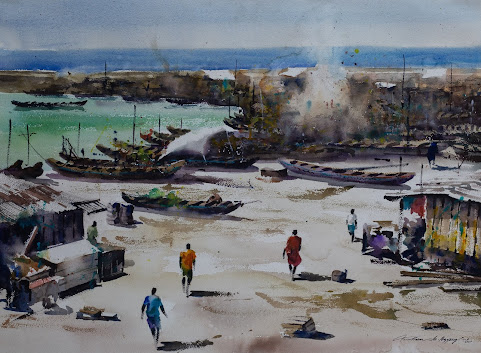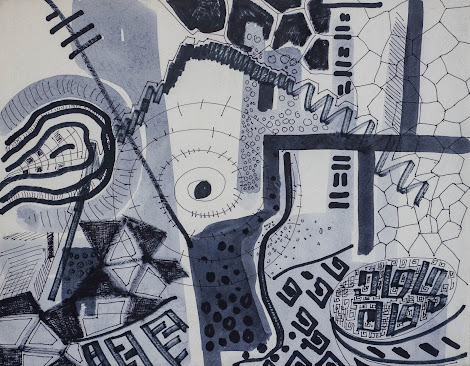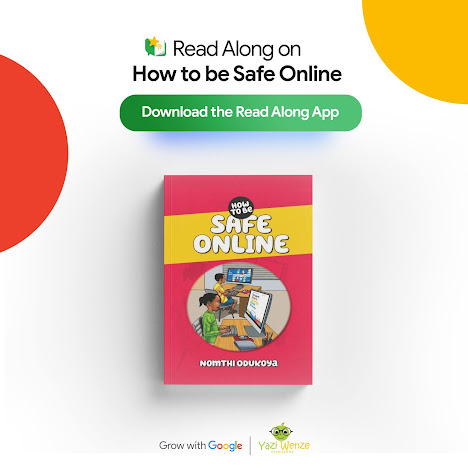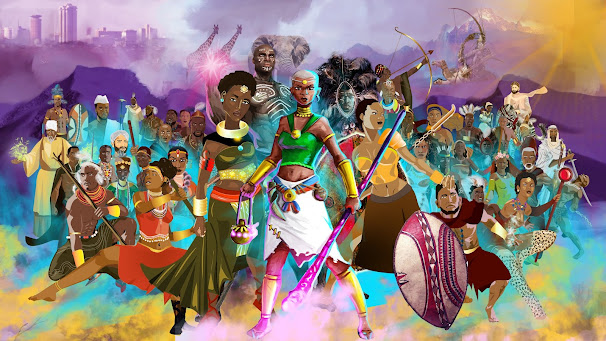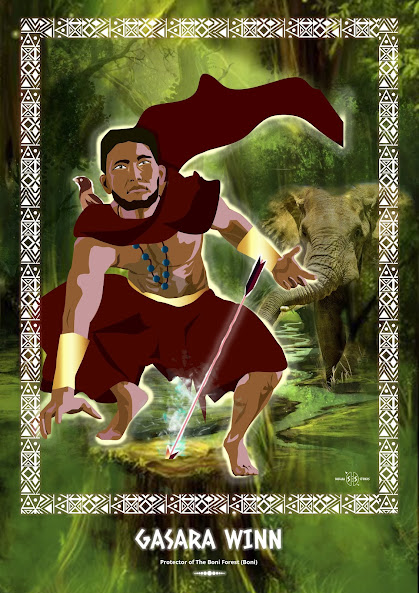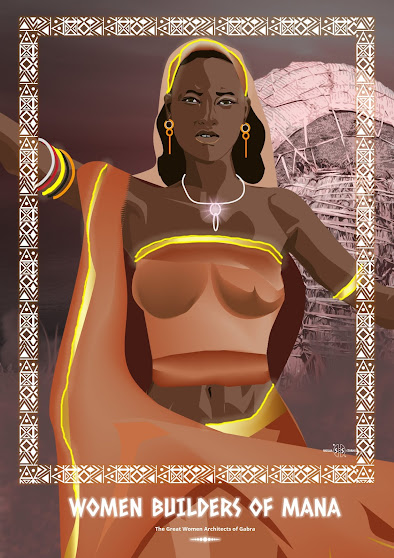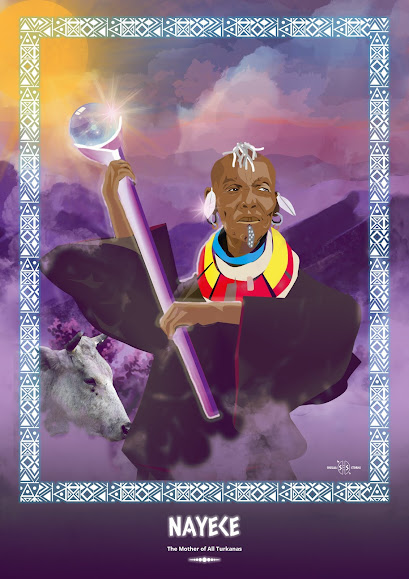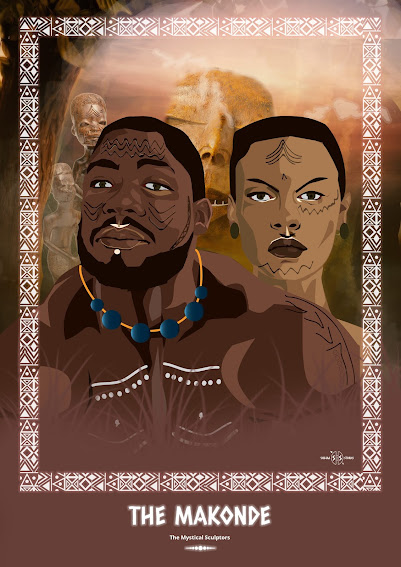Tag Archives: Africa
Meet the African #YouTubeBlackVoices Creator Class of 2021
Source: Official Google Africa Blog
Introducing people cards: easy way to get found on Google Search
If you search for famous people on Google, it’s easy to find information about well-known personalities: search their names and you’ll often find knowledge panels that organize information about them from trusted sources, all in an easy-to-digest format. But what happens when you search for people who aren’t famous - or even search for your own name? It’s not always easy to find the person or information that you’re looking for. After all, there are many people who share the same name, and it’s hard to know who’s who on the internet.
If you’re a content creator, business professional, or anyone looking to build up your own online presence, you might have a website, social profiles, and other information spread across many sites. If you’re just getting started, you may not have a website or much of an online presence at all. Today, we are solving these challenges by expanding a feature called people cards to the region. It’s like a virtual card, where you can highlight your existing website or social profiles you want people to visit, plus other information about yourself that you want others to know.
Creating a people card is easy. First, sign into your Google Account, then simply search for your name or “add me to Search” and tap the prompt that appears. To start building your people card, you can choose to include the image from your Google account, add a description of yourself, links to your website or social profiles, and, if you want, a phone number or email address. The more information you provide, the easier it is for people to find you.
Our goal with Search is to always make sure people can find helpful and reliable information, so we have a variety of protections and controls in place to maintain the quality of information on people cards. Only one people card is allowed per Google Account, and a phone number is required to authenticate the account. We have a number of mechanisms to protect against abusive or spammy content, and if you come across low quality information or a card that you believe was created by an impersonator, you can tap the feedback link to let us know. If you no longer want your people card to appear in Search, you can delete it at any time.
If you’re trying to find someone on Search, these new cards make it quick and easy to find the right person. When you search for someone’s name and there’s a card available, you’ll see a module with the name, profession and location, which you can tap to see their card. For people who share the same name, you’ll see multiple modules, and the information can help you distinguish between the different individuals to find who you’re looking for.
For the millions of influencers, entrepreneurs, prospective employees, self-employed individuals, freelancers, or anyone else out there who wants to be discovered, we hope this new Search feature will help the world find them. For people in Kenya, Nigeria, and South Africa searching on mobile phones, people cards are rolling out in English starting today.
Source: Official Google Africa Blog
YouTubeBlack Africa Creator Week- Supporting and Celebrating African Creators
The Africa Creator Week will conclude with a two-hour virtual celebration event to celebrate African creators and creativity on Friday, November 27 at 5pm GMT. The event will have music performances by Fireboy, Niniola, Reekado Banks, Sauti Sol, Sho Madjozi with dance showcases from Dream Catchers, Ikorodu Bois, Triplet Ghetto Kids. Hosted by YouTube Creator, Akah Bants. The event is opened to everyone and will be live streamed on the Google Africa YouTube channel. Click here for the livestream link and set your reminders!This week, we’re also celebrating African creators whose channels have reached new milestones. Congratulations to Beauty and style creator, Dodos, makeup and beauty creator Kay Ngonyama and Tech YouTuber Eric Okafor on attaining 100k subscribers and receiving their Silver Creator Awards. These creators and others continue to use YouTube to express themselves and give a voice to Africa’s stories. Overall, we’ll be building some positive engagement on the vibrancy of the creator ecosystem, and our commitment to black creators in the region.
====
Source: Official Google Africa Blog
Celebrating Ghanaian Contemporary Art with Google Arts & Culture
In order to preserve Ghanaian culture and share it with the world, Nubuke Foundation has partnered with Google Arts & Culture to give a global audience the opportunity to virtually experience contemporary art from Ghana. As the first Ghanaian partner to come onboard on Google Arts & Culture, we are thrilled to share over 270 artworks and 9 online exhibits shining light on Ghanaian contemporary art and artists. Our goal is to continue to fuel the creative communities through our new bespoke gallery space in Accra and now also virtually on Google Arts & Culture.
James Town Fishing I, Jonathan Kwegyir Aggrey
The Choir, Ayimaa-Kankam Marjorie
Menkronso Kwesida (Psalm Sunday), Patrick Tagoe-Turkson
We first partnered with Google Arts & Culture in 2015, collaborating on the 89plus Residency Program at Google Arts & Culture Lab. Twenty one artists participated in a workshop at the foundation and explored the synergies of technology and art. After the workshop, artist Elisabeth Efua Sutherland was invited in residence at the Google Arts & Culture Lab in Paris, where she presented a performance involving virtual reality, sculptures, dance and developed a performance based on an ancient Akan mythological character from Ghana involving virtual reality, sculptures, dance and sound
From today, you can explore what makes Ghanaian contemporary art so unique from the comfort of your home. Start by discovering the archives of one of Ghana's pioneering photographers James Barnor who covered the declaration of Ghana’s independence at the Old Polo Grounds in Accra, among other important national assignments. See how artist Musah Yussif experienced the COVID-19 lockdown and zoom into the details of his portrait series titled The Saints.’ Delve into Winfred Nana Amoah’s mixed-media portraits of women from his hometown of Hohoe as well as portraits of waste collectors from Accra’s Nima through the collage figurations of artist Rufai Zakari. Learn more about our Young Ghanaian Artist Programme through the artworks of Gideon Appah, Eric Gyamfi and Kwame Asante Agyare. Or visit the coast of Ghana through the paintings of Jonathan Kwegyir Aggrey.
Nubuke Foundation is the first Ghanaian partner on the Google Arts & Culture.
Source: Official Google Africa Blog
The opportunity for “Digital Sprinters”
The rain from this perfect storm is falling hardest on emerging markets. In many cases, they’re struggling to manage the pandemic with fewer public health resources and also suffer from greater economic vulnerabilities. Yet emerging markets also have some of the most vibrant economies and greatest entrepreneurial energy in the world. With the right policy frameworks, they can become ideal launching pads for future innovation. This challenging moment may be exactly the right time for these economies to pursue ambitious digital transformation, using their immediate recovery efforts to develop sustainable economic gains.
Nearly a third of U.S. small business owners are using digital tools to save their business during the COVID-19 crisis. In emerging markets too, digital technologies are often providing a lifeline: a plus-size clothes designer in Manaus, Brazil, a musical instruments maker in Istanbul, Turkey and an owner of a guest house in Durban, South Africa have all been able to survive by using digital technologies and online commerce.
We call these emerging economies “Digital Sprinters” because, by becoming more digital, they have the potential to sprint ahead toward economic development. Based on our experiences, we believe governments and the private sector should focus on four key areas, as detailed in a report we're releasing today:
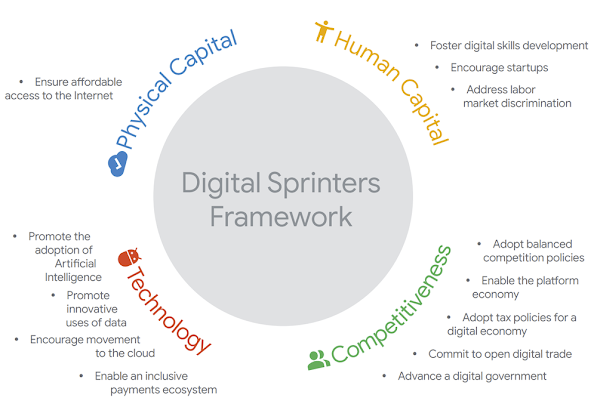
- Physical capital: this is about digital connectivity and infrastructure. It’s not just about investment but also how infrastructure is managed.
- Human capital: countries need a comprehensive approach to worker training, economic security, entrepreneurship, and combating discrimination.
- Technology: increasing the use of data, artificial intelligence, and cloud computing, which empower the growth of next-generation technologies and unlock future growth. This means new opportunities alongside new questions about how best to harness these technologies.
- Competitiveness: policies that promote competitive and open markets, interoperable regulatory standards, and tax regimes that are predictable and based on international standards.
Our recommendations reflect just one perspective on public policy frameworks for digital transformation. We hope that the report will help advance conversations about digitally-driven growth among governments, civil society, international organizations, academic institutions and entrepreneurs.
The economic potential from digital transformation is huge. A new study finds that, by 2030, digital transformation could generate as much $3.4 trillion of economic value in these Digital Sprinter markets. At a country level this translates to 25 percent of GDP in Brazil, 31 percent in Saudi Arabia and 33 percent in Nigeria, to name a few examples.
Emerging markets face a watershed moment today. As COVID-19 is disrupting world order and breaking supply chains, emerging markets have an opportunity to transform and emerge as stronger players. We hope these reports published today can play a part in helping decision-makers take advantage of these opportunities.
Posted by Kent Walker, Senior Vice President of Global Affairs.
====
Source: Official Google Africa Blog
e-Conomy Africa 2020: Understanding Africa’s $180B internet economy future
In January 2019, Abasi Ene-Obong, a young tech engineer from Nigeria, founded 54gene with the aim of making gene studies more representative by increasing access to African genomic data—which currently accounts for less than 3 percent of all genetic data sets. After securing two rounds of funding, 54gene has gone on to complete a fully resourced biobank in Lagos, crucial to support academic research, drug development, and disease detection.
Ene-Obong’s story is just one example of how talented African entrepreneurs are creating new opportunities across the continent. As a new report from Google and the International Finance Corporation (IFC) shows, the startup ecosystem is helping drive Africa’s internet economy towards a projected value of $180 billion by 2025, or 5.2 percent of the continent’s GDP.
We collaborated on the report—titled ”e-Conomy Africa 2020: Africa’s $180 billion internet economy future”—to highlight the strengths and challenges of the internet economy today, and to better understand where it might go in the future. Here are some other things we learned.
According to Partech Ventures Africa, African tech startups reached a new milestone in 2019 with $2.02 billion of equity funding raised. That’s 74 percent more than in 2018, and represents an average deal size of $8.08 million.
At the forefront of the internet economy’s growth are startups in sectors like financial technology (fintech), e-commerce, health, e-logistics, e-mobility and food delivery. Fintech leads the way in terms of funding, receiving 54 percent of all African startup investment in 2019. This indicates high investor trust, which is significant given the sector’s important role serving unbanked and financially excluded Africans.
One example is the Nigerian digital payments and commerce platform Interswitch, which received $200 million in equity funding from Visa in 2019, as well an IFC investment of $10.5 million. These investments came at a time of big growth for the electronics payment market, and, as a result, Interswitch has helped transform the infrastructure of Nigeria’s banking system, while extending its services to 23 other countries.
E-commerce startups have also shown strong growth, thanks to improved digital payment services and a rise in mobile technology and payment channels. In 2019, e-commerce accounted for $134 million in funding across 30 deals--a 36 percent increase in the number of deals compared with 2018. With COVID-19-mandated lockdowns in countries across the continent, consumers have quickly gotten much more used to e-commerce, and their new online shopping behavior may well extend beyond the pandemic.
The African developer scene boasts 700,000 professional software developers, many of them trained through university programs, others self-taught.
There’s an enormous amount of talent, but these developers need help to find jobs and take their ideas forward.
Coding classes, like those offered by Google, Decagon, Gebeya and others, are helping close knowledge and skills gaps, while professional communities continue to grow. There are more than 160 active Google Developer Groups and 200 Developer Student Clubs in Sub-Saharan Africa, offering training and support to help developers meet job requirements. And since its launch in 2018, the Google for Startups Accelerator Africa program has worked with 47 startups from 17 African countries—helping them develop products and build successful companies and products. One of the 2016 global accelerator graduates, Nigerian fintech startup Paystack, was recently acquired by Stripe for over $200 million.
IFC is also playing its part to advance digital skills development, making investments in regional startups and accelerators that cultivate tech talent. Gebeya—a company IFC supports in Ethiopia—has trained over 500 young software developers, most of whom are women, and is providing seed funding to 30 graduates to pursue their own digital ventures. IFC investee Flat6Labs is fostering tech entrepreneurship (and women entrepreneurs in particular) by directing early stage funding to startups in both Egypt and Tunisia.
Whether it's helping startups grow, training developers or providing tools for small businesses, both Google and IFC are committing to bringing the benefits of technology to millions more people across this extraordinary continent. We invite you to read the report and learn more about the opportunities unfolding throughout Africa’s thriving internet economy.
Source: Official Google Africa Blog
Cybersecurity Month: Providing helpful resources for parents, teachers & students to navigate the digital world
The online safety webinars are designed to help parents learn about helpful and find digital wellbeing tips to navigate the online world with their kids safely . The training content covers tips for setting digital ground rules for the family, helpful resources for discovering and managing family friendly content, and protecting simple solutions for protecting the family´s online privacy and security. Parents can also find quick links to learn about safety tools like Family Link, Youtube Kids, & Digital wellbeing. To register for the webinars across SSA, please visit goo.gle/onlinesafety
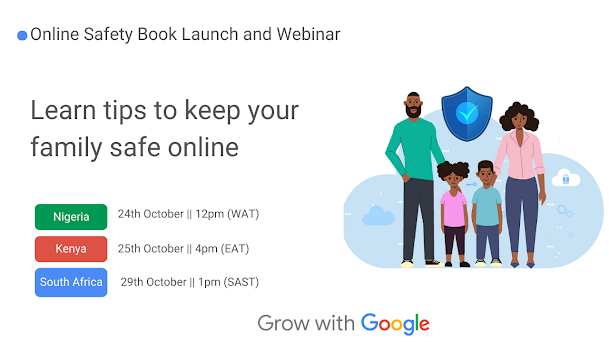
Localizing Online Safety Awareness through fun and informative Story Books
In continuation of our work to make it simpler for children to learn how to be safe while online, we have partnered with children's author, Nomthi Odukoya to create an online safety story book, titled How to be Safe Online, for families with children aged 10 to 16 years old.
The stories have also been adapted to local Kenyan, Nigerian and South African names, to make it easier for kids to relate with the story better. We are working with educational partners to share free copies across Sub Saharan Africa to families and institutions with kids aged between 10 and 16 years old.
We invite you to download the e- version for advanced readers aged 8 and above on the Read Along app. Download the read along app to get started
Scaling the Online Safety Learning in Schools
On the heels of the launch of our online safety education curriculum in Nigeria, we are pleased to announce new plans, in partnership with the South African Western Cape Education Department to launch an online safety curriculum guideline for grades 8 to 12. The guidelines which will be integrated into the Life Orientation subject will be announced at a virtual event today, 21st of October, 2020. We invite you to register to attend here.
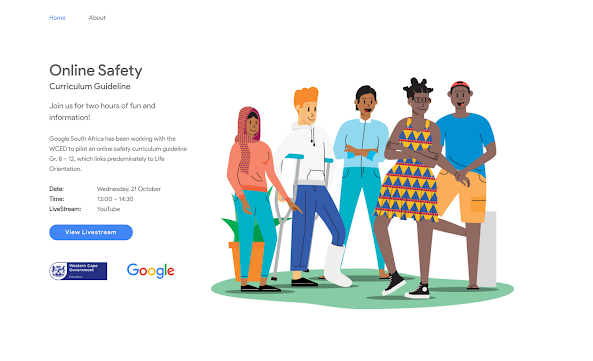
More than ever before, the need to help more people understand and practice online safety practices is crucial especially for families with children, who have been learning either virtually or through a hybrid of in person and virtual training. We understand this, and remain committed to building, developing and investing in tools and projects to help families stay safe.
To learn more about our resources to keep you and your family safe, please visit the Google Safety Center.
Source: Official Google Africa Blog
Mashujaa: Celebrate the communities of Kenya with Google Arts & Culture
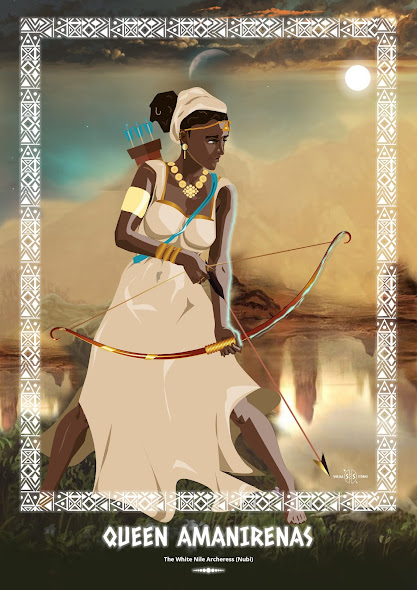 |
| Queen Amanirenas: The White Nile Archeress (Nubi community) - National Museums of Kenya and Shujaa Stories |
 | ||
Gor Mahia: The Powerful Magician (Luo community) - National Museums of Kenya and Shujaa Stories
|
 |
| Mekatilili Wa Menza: Wonder Woman (Giriama community) - National Museums of Kenya and Shujaa Stories |
 |
| Mbatian: The Great Laibon (Maasai community) - National Museums of Kenya and Shujaa Stories |
 |
| Taveta Mystic: Creator of Lake Chala (Taveta community) - National Museums of Kenya and Shujaa Stories |
Mashujaa : Les communautés kenyanes à l’honneur grâce à Google Arts & Culture
Aujourd’hui, au Kenya, nous célébrons Mashujaa Day, la Journée nationale des Héros, l’occasion de rendre hommage aux personnalités d’exception qui ont façonné notre nation. Gros plan sur un panthéon de héros issus du monde de la culture classique et populaire, pour montrer comment, par leurs super-pouvoirs, ils continuent d’incarner la force et le cœur non seulement des communautés dont ils sont originaires, mais de l’ensemble du pays. Nous avons besoin de jours comme celui-ci pour nous rappeler que notre patrimoine commun et notre diversité font de nous un peuple, et c’est donc avec une grande fierté que je dévoile le deuxième chapitre du projet en ligne Utamaduni Wetu : À la rencontre du peuple kényan, créé en collaboration avec les musées nationaux du Kenya, Google Arts et culture et Shujaa Stories.
Initialement lancé en 2019, Utamaduni Wetu : À la rencontre du peuple Kényan est le projet de numérisation de Google le plus ambitieux à ce jour en Afrique, et l’un des premiers à proposer des contenus numériques sur le thème des communautés kényanes. Chacun peut désormais découvrir plus de 10 500 photographies en haute résolution, 129 expositions organisées par des experts et 80 Street Views de 16 sites et en savoir plus sur le patrimoine immatériel et l'histoire des 44 communautés que compte officiellement ce pays. Les expositions mettent en lumière les régions, l’histoire, les traditions, la morale, la vision du monde et la sagesse des communautés du Kenya, dont certains récits, généralement transmis oralement, ont été transcrits et mis à disposition en ligne pour la première fois.
Aujourd’hui, en cette Journée de Mashujaa, je suis ravi d’annoncer que nous avons désormais au moins un super-héros pour chacune de nos 44 communautés, et je vous invite à découvrir leurs portraits sur Google Arts et culture. Conçus à l’origine par feu Masidza Sande Galavu et Jeff Muchina de l’agence de création Shujaa Stories, un groupe de jeunes designers et écrivains qui ont créé les animations de super-héros, les 21 premiers héros ont été dévoilés lors d’une exposition dans les Musées nationaux du Kenya et en ligne dans le cadre du projet Utamaduni Wetu : À la rencontre du peuple Kényan. Aujourd’hui, sous la direction du Dr Mzalendo Kibunjia, directeur général des musées nationaux du Kenya, une équipe motivée de chercheurs, de conservateurs, d’universitaires et de jeunes créateurs a permis de donner vie à 40 autres histoires. Ils ont parcouru un grand nombre de kilomètres pour acquérir une connaissance de première main des communautés. Ils ont ensuite mené des recherches, documenté et illustré avec passion un total de 61 héros hommes et femmes de toutes cultures et de tous âges, originaires de régions différentes.
La collaboration entre le gouvernement et Google Arts & Culture a permis de démocratiser l’accès au riche patrimoine du Kenya et à faire découvrir notre culture et les liens qui nous unissent de manière innovante et interactive. Il a également encouragé les internautes à se rendre dans les musées, à visiter les monuments et les sites du patrimoine kényan.
Je vous encourage à lire toutes les histoires. La bravoure et les prouesses de chacun de ces super-héros sont une source d'inspiration pour nous tous. Ils mettent à l’honneur les valeurs et l’héritage des peuples du Kenya ainsi que notre unité dans la diversité. Je voudrais me faire l’écho des paroles du grand écrivain Ngũgĩ wa Thiong’o, lorsqu’il disait : « Les peuples du Kenya ont une histoire et une culture d’une incroyable richesse. Notre faculté à apprendre à partir de ce que nous avons déjà, qui nous a été transmis par toutes les communautés, c’est la voie qui nous permettra de nous ouvrir au monde. »
